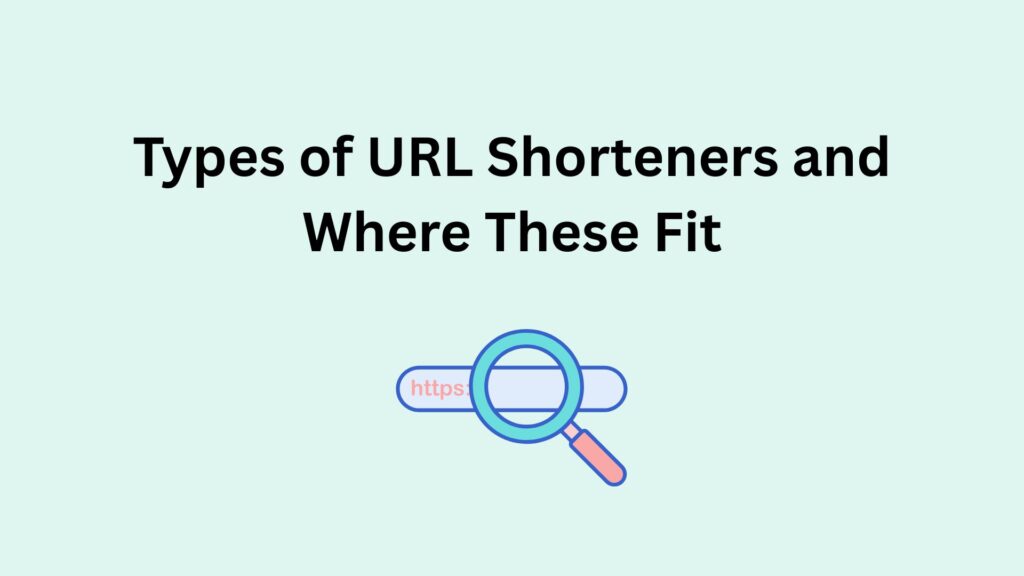Introduction
In today’s fast-paced digital world, sharing links efficiently is a necessity for tech enthusiasts, students, educators, and professionals alike. Long, unwieldy URLs can clutter messages, exceed character limits on platforms like Twitter, or simply look unprofessional. This is where URL shorteners come in—tools that transform lengthy web addresses into concise, manageable links. Free URL shorteners, in particular, offer a cost-effective solution for individuals and organizations looking to streamline their online presence without breaking the bank. Whether you’re promoting a tech course, sharing research, or comparing tools on a technology institute website, these services can enhance your digital strategy.
In this comprehensive guide, we’ll explore the top 5 best free URL shortener websites available in 2025. We’ll dive into their features, advantages, disadvantages, and how they stack up against each other. Additionally, we’ll answer key questions like “Which is the best free URL shortener?” and “How do you shorten a URL for free?” while addressing specific queries such as “Is TinyURL free?” and “Is Bitly no longer free?” By the end, you’ll have a clear understanding of these tools and how they can benefit your tech-related endeavors.
What Are URL Shorteners and Why Use Free Ones?
A URL shortener is an online tool that takes a long web address (e.g., https://www.example.com/technology/courses/advanced-programming-2025) and converts it into a shorter version (e.g., https://short.link/abc123). When someone clicks the shortened link, they’re redirected to the original destination. These tools are invaluable for:
- Saving Space: Ideal for platforms with character limits, like social media bios or SMS.
- Improving Aesthetics: Short links look cleaner and more professional.
- Tracking Performance: Many offer analytics to monitor clicks and user behavior.
- Ease of Sharing: Simplified URLs are easier to copy, paste, and remember.
Free URL shorteners are especially appealing for students, educators, and small tech organizations. They provide essential functionality without requiring a subscription, making them accessible for learning, experimentation, or budget-conscious projects. However, free plans often come with limitations, which we’ll explore as we review the top options.
Top 5 Free URL Shortener Websites in 2025

Image credits: canva.com
Here’s our curated list of the top 5 free URL shortener websites in 2025, based on usability, features, and value for tech-focused users.
1. TinyURL
Overview
TinyURL is a veteran in the URL shortening space, known for its simplicity and reliability since its inception in 2002. It remains a go-to option in 2025 for users seeking a no-frills, free service.
Key Features
- Instant Shortening: Paste a URL and get a shortened link in seconds, no account required.
- Custom Alias Option: Add a custom ending (e.g., tinyurl.com/tech2025) for free.
- Browser Bookmarklet: A tool to shorten URLs directly from your browser.
- Permanent Links: Shortened URLs don’t expire.
Advantages
- Completely free with no hidden costs.
- Fast and straightforward—perfect for beginners or one-off use.
- Custom aliases enhance branding without a paid plan.
Disadvantages
- No analytics or click tracking on the free tier.
- Limited advanced features compared to competitors.
- The interface feels dated, lacking modern design elements.
Best For
Students or educators needing a quick, reliable way to share links without analytics.
2. Bitly
Overview
Bitly is a powerhouse in link management, widely recognized for its robust features. While it offers premium plans, its free tier remains a strong contender in 2025.
Key Features
- Link Shortening: Create up to 10 shortened links per month on the free plan.
- Basic Analytics: Track clicks, locations, and referrers for free links.
- Custom Back-Half: Personalize the end of your link (e.g., bit.ly/techcourse).
- QR Code Generation: Free QR codes for shortened links.
Advantages
- Analytics provide insights into link performance, a rarity in free tools.
- It is a trusted brand with a sleek, user-friendly interface.
- QR codes add versatility for offline sharing (e.g., flyers or presentations).
Disadvantages
- Limited to 10 links per month on the free plan, which may not suffice for heavy users.
- Advanced features (e.g., branded domains) require a paid upgrade.
- Free tier has scaled back over the years, prompting the question: “Is Bitly no longer free?” (More on this later).
Best For
Tech professionals or content creators who need basic tracking and a polished experience.
3. Short.io
Overview
Short.io stands out in 2025 for its generous free plan, offering customization and analytics that rival paid tools. It’s ideal for tech-savvy users who value branding.
Key Features
- Custom Domains: Use up to 5 custom domains for free (e.g., yourtech.site/xyz).
- Analytics: Detailed stats on clicks, devices, and locations.
- Link Management: Organize and edit links from a dashboard.
- QR Codes: Generate QR codes for free.
Advantages
- Custom domains boost branding, a premium feature elsewhere.
- Comprehensive analytics rival paid competitors.
- Scalable for small tech projects or educational campaigns.
Disadvantages
- Requires domain ownership, which may involve extra setup or cost.
- Free plan caps at 1,000 clicks per month across all links.
- Slightly steeper learning curve for beginners.
Best For
Tech institutes or educators wanting branded links and detailed insights.
4. Rebrandly
Overview
Rebrandly focuses on branded link creation, offering a solid free tier in 2025 that appeals to those prioritizing identity in their URLs.
Key Features
- Branded Links: Use 1 custom domain with up to 500 branded links.
- Analytics: Track clicks and basic performance metrics.
- Link Editing: Change destinations post-creation.
- Browser Extension: Shorten links on the fly.
Advantages
- Branded links enhance trust and recognition.
- Flexible link editing saves time if URLs change.
- A free plan is generous for small-scale use.
Disadvantages
- Limited to 500 links and 5,000 clicks per month.
- Requires a custom domain, adding setup complexity.
- Fewer free features compared to Short.io.
Best For
Tech content writers or small organizations focused on branding.
5. T.ly
Overview
T.ly is a rising star in 2025, offering a minimalist yet powerful free URL shortening service tailored for simplicity and efficiency.
Key Features
- Unlimited Shortening: No cap on the number of links created.
- Basic Analytics: Click counts and geographic data.
- Custom Slugs: Personalize link endings (e.g., t.ly/techbit).
- API Access: Free API for developers.
Advantages
- Unlimited link creation is a standout feature.
- Lightweight and easy to use, ideal for quick tasks.
- API access appeals to tech students or developers.
Disadvantages
- Analytics are basic compared to Short.io or Bitly.
- No custom domain support on the free plan.
- Less established than competitors, potentially affecting trust.
Best For
Tech learners or hobbyists needing a simple, unlimited solution.
Which Is the Best Free URL Shortener?
Choosing the “best” free URL shortener depends on your needs:
- For Simplicity: TinyURL wins with its no-signup, instant shortening.
- For Analytics: Bitly or Short.io lead, with Short.io offering more depth for free.
- For Branding: Short.io and Rebrandly excel with custom domain support.
- For Unlimited Use: T.ly stands out with no link creation limits.
Our Recommendation: Short.io takes the top spot in 2025. Its blend of custom domains, detailed analytics, and a generous free tier makes it versatile for tech education, content creation, and small-scale projects. It balances functionality and accessibility, aligning perfectly with a technology institute’s goals.
How Do You Shorten a URL for Free?
Shortening a URL for free is straightforward with these tools. Here’s a general process:
- Choose a Tool: Visit a site like TinyURL, Bitly, or Short.io.
- Paste Your URL: Enter the long web address in the provided field.
- Customize (Optional): Add a custom alias if supported (e.g., tech2025).
- Generate: Click the “Shorten” button to create your link.
- Copy and Share: Use the shortened URL in emails, social posts, or documents.
Most free tools don’t require an account for basic shortening, though signing up unlocks extras like analytics or link management.
Is TinyURL Free?
Yes, TinyURL is completely free in 2025. You can shorten unlimited URLs without an account and even add custom aliases at no cost. However, it lacks analytics or advanced features unless you opt for a paid plan (starting at a modest fee for branded domains and tracking).
Is Bitly No Longer Free?
Bitly still offers a free plan in 2025, but it’s more limited than in previous years. You’re capped at 10 links per month with basic analytics and QR code generation. This shift has led to the perception that “Bitly is no longer free,” but it retains a free tier—albeit with restrictions. For unlimited links or branded domains, you’ll need a paid plan (starting around $8/month).
Advantages and Disadvantages of Free URL Shorteners
Advantages
- Cost-Free Access: No subscription is needed, which makes it ideal for students or small teams.
- Ease of Use: Most tools are intuitive, requiring minimal setup.
- Enhanced Sharing: Short links fit anywhere, from tweets to classroom handouts.
- Basic Analytics: Some (e.g., Bitly, Short.io) offer free tracking, aiding tech education projects.
Disadvantages
- Limited Features: Free tiers often lack advanced options like deep analytics or bulk shortening.
- Click Caps: Tools like Short.io and Rebrandly limit monthly clicks.
- Branding Constraints: Custom domains may require extra effort or cost.
- Reliability Risks: Lesser-known tools might lack long-term stability.
For tech users, the trade-off is clear: free tools save money but may not scale for large campaigns or complex needs.
Comparison of the Top 5 Free URL Shorteners
| Tool | Custom Domains | Analytics | Link Limit | Click Limit | Ease of Use | Unique Feature |
|---|---|---|---|---|---|---|
| TinyURL | No | None | Unlimited | Unlimited | Very High | Instant, no signup |
| Bitly | No | Basic | 10/month | Unlimited | High | QR codes included |
| Short.io | Yes (5) | Detailed | Unlimited | 1,000/month | Moderate | Multi-domain support |
| Rebrandly | Yes (1) | Basic | 500 total | 5,000/month | Moderate | Link editing |
| T.ly | No | Basic | Unlimited | Unlimited | High | Free API access |
Similarities
- All offer free basic shortening.
- Most provide customization options (e.g., custom slugs).
- They’re web-based and accessible without downloads.
Differences
- Analytics Depth: Short.io offers the most detailed free stats, while TinyURL has none.
- Branding: Short.io and Rebrandly support custom domains; others don’t on free plans.
- Limits: Bitly restricts link creation, while T.ly and TinyURL offer unlimited use.
Types of URL Shorteners and Where These Fit

Image credits: canva.com
URL shorteners come in various types:
- Basic Shorteners: Focus on simplicity (e.g., TinyURL, T.ly).
- Analytics-Focused: Provide click data (e.g., Bitly, Short.io, Rebrandly).
- Branded Shorteners: Emphasize custom domains (e.g., Short.io, Rebrandly).
- TinyURL and T.ly: Fit the “basic” category, prioritizing ease over extras.
- Bitly: Straddles “basic” and “analytics-focused” with its free tier.
- Short.io and Rebrandly: Blend “branded” and “analytics-focused,” offering more for tech users.
Conclusion
Free URL shorteners are indispensable tools in 2025 for anyone in the tech space—whether you’re a student sharing resources, an educator promoting courses, or a content writer comparing tools. Among the top 5—TinyURL, Bitly, Short.io, Rebrandly, and T.ly—each brings unique strengths to the table. TinyURL excels in simplicity, Bitly offers trusted analytics, Short.io leads in branding and depth, Rebrandly balances customization, and T.ly provides unlimited flexibility.

